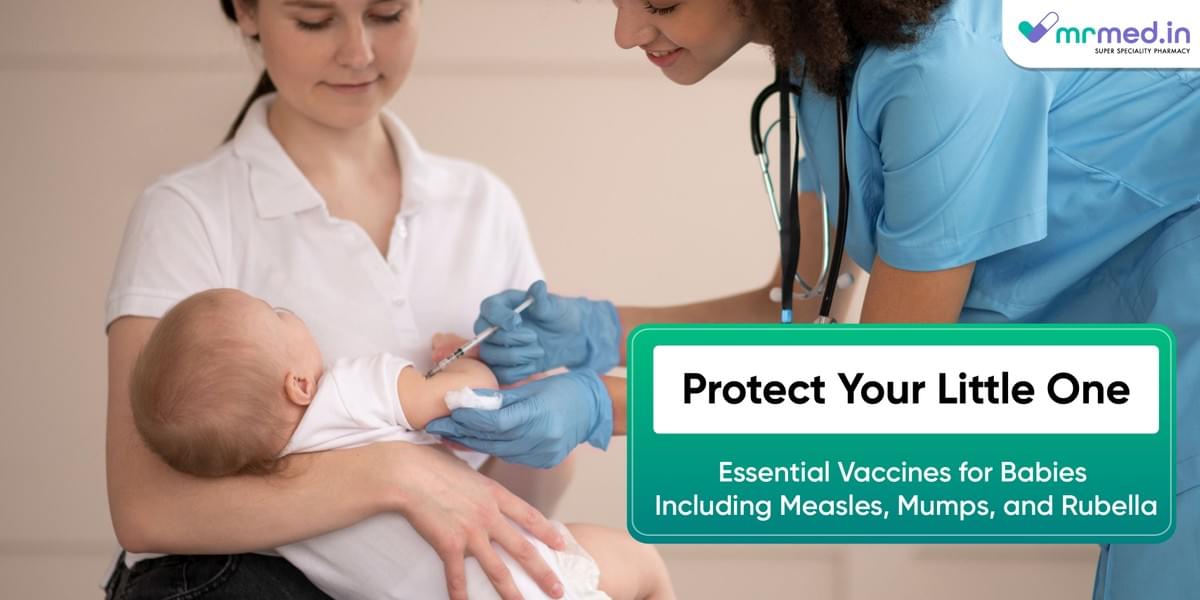
Vaccination hugely contributes a lot towards ensuring the safety of children. Immunization targets at preventing serious infectious diseases by stimulating the immune system to distinguish infectious agents encountered and fight them productively. A number of vaccines are required by infants, which include the measles, mumps, and rubella ones and team 3 as supplier, Tresivac Injection is the kind. This guide will address reasons according to which you should consider your child’s vaccination against Measles, Mumps, and Rubella (MMR).
What is the importance of early childhood vaccination?
Vaccines such as the MMR play a major role in making the planet safe from the diseases particularly the infectious ones. The benefits of receiving vaccines are manifold:The benefits of receiving vaccines are manifold:
- Direct Immunity Without Disease Risk: The immunization process acts just like infection in the sense that it is able to help the immune system develop resistance to the disease as a whole but without the patient having to go through the hurtle and complications of the infection.
- Community Protection via Herd Immunity: The properly vaccinated people in the area represent a gate, through which the infections enter the community and prevent them from spreading further. For low vaccination rate among newborns and those with specific medical condition are this counselling very important to keep these groups safety, ehich is achieved collectively.
- Preservation of Long-term Health: Vaccination of children is the perfect way to alleviate the immediacy of virus-borne diseases not only but also they guarantee that they will not result in other health complications later in life. The example includes going mumps way, getting Kill small babies that are defected by rubella.
- Prevention of Outbreaks: The vaccination programmes that have proven to be effective, for example the MMR vaccine, prevent these type of diseases from staging a comeback and overcoming the control line or lead to their eradication . The Third Wave has taught us that it is imperative to keep the rates of vaccination high to prevent catastrophic results of another outbreak and prevent its spread.
- Cost-effectiveness: Vaccination is not only a life-saver, it is also a cost-cutter and thus should be encouraged. Vaccines revolve around the prophylaxis of the diseases hence leading to reduction of the need for clinical management, hospitalization, and long-term health care interventions thus leading to saving of billions of the healthcare costs worldwide.
- Enhanced Quality of Life: Such children, who are vaccinated at an early age, typically avoid sickness and are more involved in the educational activities without interruptions from typical childhood ailments, thus their academic progress is higher and they have better opportunity to get a head start in their life.
- Global Health Improvements: The global implementation of vaccines would be one of the major approaches to international public health care because they would control infectious diseases that can be transported across borders in no time. Wiping out a disease worldwide results in an overall good health outcome and provides health systems with stability to an extended degree on national scales.
What is the use of Tresivac injection?
The Tresivac Injection, or better known as Measles, Mumps, and Rubella (MMR) vaccine, is made to counteract three common viral infections that can lead to grave consequences in young age. Each component of this combination vaccine plays a vital role:
- Measles: The illness is a very contagious viral infection that might cause fever, skin rash, and respirators symptoms. It may progress to pneumonia, encephalitis (i.e. brain inflammation), and death which are often fatal.
- Mumps: This virus mostly targets salivary glands causing a swollen persons throat and a temperature. It is also responsible for meningitis whereas in males, it may lead to infertility really uncommonly.
- Rubella (German Measles): Besides being a less challenging one, rubella can also be a problem for women in pregnancy who risk with congenital rubella syndrome that is lacking of a normal child or miscarriage at birth.
The first shot of MMR (Mumps-Measles-Rubella) is delivered in two doses. The first dose (of the vaccine) is generally administered between 12 and 15 months of age, with the second one given between 4 and 6 years. It allows programming maximum immunity against specific diseases. Write a response in 500-650 words on the given topic when COVID-19 first emerged.
When should my child get the MMR vaccine?
The guidelines for the two-dose MMR vaccine are listed below. The initial dose of a measles vaccine, which should be given within the period of 12 to 15 months of age, needs to be followed by the second dose of the vaccine, which is recommended to be given when the child is between 4 and 6 years of age. Hosts accordingly develop an immune response is a result of this timing.
Side Effects of the Tresivac Injection
The Tresivac Injection, like all vaccines, can cause side effects, but they typically resolve quickly and don't cause serious problems. Here are some:
- The most frequent unpleasant reactions of the Tresivac Injection are a mild fever, redness, and itchiness at the injection area, which are usually temporary.
- A huge number of side effects are mild and short lasting, therefore they pose no risk to a patient future health.
- In some cases, there may be occurrence of a severe allergic reaction that emphasizes the importance of vaccinations to be done in a controlled medical setting.
- It's necessary to monitor closely the process after vaccination, to avoid the cases with unexpected really serious reactions.
